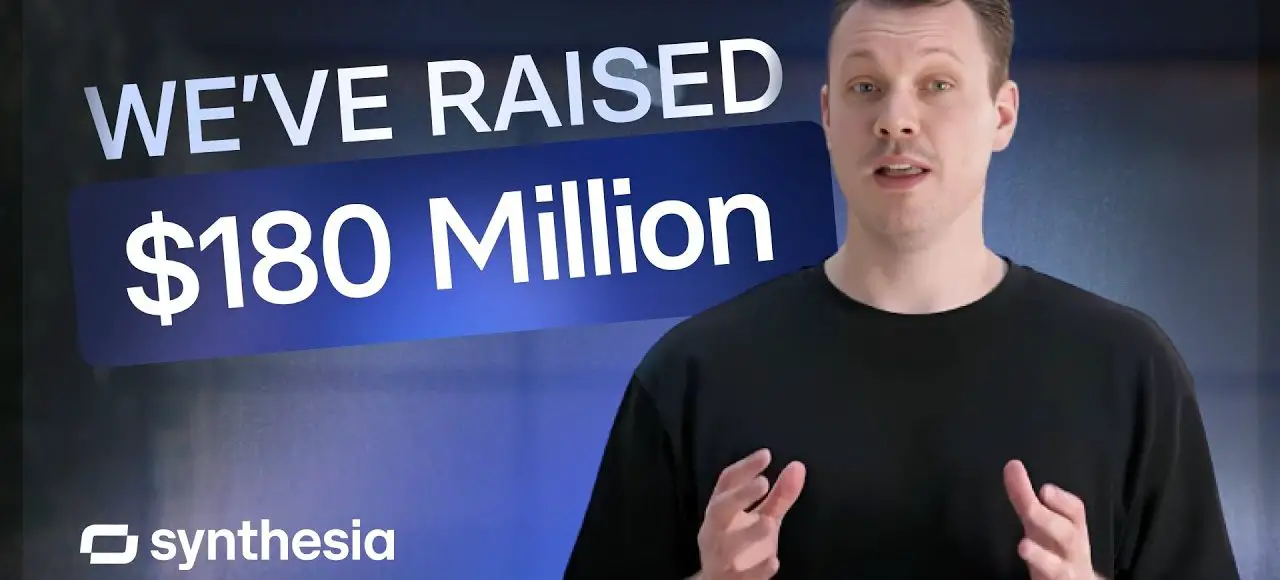PHP is Not Bad, So Why Is It Not Well-Received?
Despite often being criticized (it feels like there are more complaints than cat videos online), PHP remains one of the most widely used server-side scripting languages. Yes, you heard that right. According to 3Techs, as of July 2023, a staggering 77.4% of all known websites are using PHP. That’s no small number! PHP's popularity can be attributed mainly to its ease of entry. Before you even shout "Hello, World!", you might already have a webpage interacting with a database. And let's not forget WordPress—can you imagine it supporting over 40% of the web's content? However, despite these impressive figures, PHP often becomes the butt of jokes. A quick search for "PHP hate" will yield more dirt than a summer barbecue party. Even PHP's creator, Rasmus Lerdorf, once said, "I don’t know how to stop, I never intended to create a programming language [...] I didn’t know how to create a programming language, I just added one step at a time." If that’s not the most inspiring origin story, I don’t know what is. Understanding the Criticism: Why PHP Was Once Unpopular Let’s take a look back in time. PHP first appeared in 1995, and to be honest, it wasn't very appealing at that time. Frankly, it was a bit messy. Some reasons for its early unpopularity included Inconsistency: Function names and parameter orders were often chaotic, resembling a stack of pancakes rather than a carefully constructed waffle. Security Issues: The phrase "PHP is insecure" has circulated online for many years. There is indeed some truth to it. Early PHP made it easy for developers to leave significant vulnerabilities in their applications. You wouldn't leave your front door wide open with a sign saying "Welcome to Steal," so why would a website do the same? But hey, everyone has to learn. Incomplete: It wasn't until PHP 5 was released in 2004 that object-oriented programming (OOP) was fully supported. Imagine being invited to a potluck, but they show up 9 years late with a half-eaten sandwich. Debugging Issues: Debugging PHP was like playing hide-and-seek with a ninja. The problem was, this ninja was also invisible and on fire. Encouraging Bad Habits: PHP's loose error handling and type checking led to some poor coding practices. But hey, everyone makes mistakes, and programming languages are no different. Ultimately, any tool can cause issues if misused. Having watched enough cooking show failures, I know that failure isn't always the kitchen's fault. But hold on, before you completely dismiss PHP, we must remember that a lot has changed from the mid-90s to now. Just as you wouldn't judge someone solely by their high school graduation photo, we shouldn't only look at PHP's past. So, let's ditch those outdated notions and see how PHP has grown over the years. Spoiler alert: it has come a long way. The Evolution of PHP: From PHP 4 to PHP 8 To be fair, PHP has been constantly improving. It's like it went on a journey of self-discovery, found a Zen master, and returned in a refreshed form. First, PHP 5 in 2004 marked a significant leap toward object-oriented programming. PHP matured and began to wear a suit and tie, engaging with big players like Java and C#. We got better OOP support and a bunch of features that made PHP a more powerful and flexible language. Sure, there were still some quirks, but the language started showing signs of maturity. Then came PHP 7 in 2015, which brought significant speed and performance improvements. It was like PHP went from riding a tricycle to driving a sports car. With features like scalar type declarations and return type declarations, PHP began to enforce type checking more strictly, which helps prevent many issues in the code. But the progress didn’t stop there. PHP 8, released in 2020, introduced even more new features. Named parameters, attributes, union types, match expressions, null-safe operators, and even a Just-In-Time (JIT) compiler made PHP 8 a heavyweight contender in the programming realm. Additionally, the debugging process has greatly improved, thanks to Xdebug. Remember that invisible, on-fire ninja? Now we have night vision goggles and fire extinguishers. Thanks, Xdebug! As of now, PHP has released version 8.4, which is an epic update. Among its features, property hooks may be one of the biggest changes in modern PHP history. Property hooks support computed properties that can be directly understood by IDEs and static analysis tools without the need for potentially outdated docblock comments. They also allow for reliable preprocessing or postprocessing of values without checking for matching getters or setters in the class. There are also updates like method chaining without parentheses, asymmetric visibility, and more. For more updates, you can check out this article. Local PHP Environment: Boosting Efficiency While PHP is self-improving, the tools we use are also evolving—because, like any active ecosystem, PHP is surrounded by cons

Despite often being criticized (it feels like there are more complaints than cat videos online), PHP remains one of the most widely used server-side scripting languages.
Yes, you heard that right. According to 3Techs, as of July 2023, a staggering 77.4% of all known websites are using PHP. That’s no small number!
PHP's popularity can be attributed mainly to its ease of entry. Before you even shout "Hello, World!", you might already have a webpage interacting with a database. And let's not forget WordPress—can you imagine it supporting over 40% of the web's content?
However, despite these impressive figures, PHP often becomes the butt of jokes. A quick search for "PHP hate" will yield more dirt than a summer barbecue party.
Even PHP's creator, Rasmus Lerdorf, once said, "I don’t know how to stop, I never intended to create a programming language [...] I didn’t know how to create a programming language, I just added one step at a time." If that’s not the most inspiring origin story, I don’t know what is.
Understanding the Criticism: Why PHP Was Once Unpopular
Let’s take a look back in time.
PHP first appeared in 1995, and to be honest, it wasn't very appealing at that time. Frankly, it was a bit messy.
Some reasons for its early unpopularity included
- Inconsistency: Function names and parameter orders were often chaotic, resembling a stack of pancakes rather than a carefully constructed waffle.
- Security Issues: The phrase "PHP is insecure" has circulated online for many years. There is indeed some truth to it. Early PHP made it easy for developers to leave significant vulnerabilities in their applications. You wouldn't leave your front door wide open with a sign saying "Welcome to Steal," so why would a website do the same? But hey, everyone has to learn.
- Incomplete: It wasn't until PHP 5 was released in 2004 that object-oriented programming (OOP) was fully supported. Imagine being invited to a potluck, but they show up 9 years late with a half-eaten sandwich.
- Debugging Issues: Debugging PHP was like playing hide-and-seek with a ninja. The problem was, this ninja was also invisible and on fire.
- Encouraging Bad Habits: PHP's loose error handling and type checking led to some poor coding practices. But hey, everyone makes mistakes, and programming languages are no different. Ultimately, any tool can cause issues if misused. Having watched enough cooking show failures, I know that failure isn't always the kitchen's fault.
But hold on, before you completely dismiss PHP, we must remember that a lot has changed from the mid-90s to now. Just as you wouldn't judge someone solely by their high school graduation photo, we shouldn't only look at PHP's past. So, let's ditch those outdated notions and see how PHP has grown over the years. Spoiler alert: it has come a long way.
The Evolution of PHP: From PHP 4 to PHP 8
To be fair, PHP has been constantly improving. It's like it went on a journey of self-discovery, found a Zen master, and returned in a refreshed form.
First, PHP 5 in 2004 marked a significant leap toward object-oriented programming. PHP matured and began to wear a suit and tie, engaging with big players like Java and C#.
We got better OOP support and a bunch of features that made PHP a more powerful and flexible language. Sure, there were still some quirks, but the language started showing signs of maturity.
Then came PHP 7 in 2015, which brought significant speed and performance improvements. It was like PHP went from riding a tricycle to driving a sports car. With features like scalar type declarations and return type declarations, PHP began to enforce type checking more strictly, which helps prevent many issues in the code.
But the progress didn’t stop there. PHP 8, released in 2020, introduced even more new features. Named parameters, attributes, union types, match expressions, null-safe operators, and even a Just-In-Time (JIT) compiler made PHP 8 a heavyweight contender in the programming realm.
Additionally, the debugging process has greatly improved, thanks to Xdebug. Remember that invisible, on-fire ninja? Now we have night vision goggles and fire extinguishers. Thanks, Xdebug!
As of now, PHP has released version 8.4, which is an epic update. Among its features, property hooks may be one of the biggest changes in modern PHP history. Property hooks support computed properties that can be directly understood by IDEs and static analysis tools without the need for potentially outdated docblock comments. They also allow for reliable preprocessing or postprocessing of values without checking for matching getters or setters in the class.
There are also updates like method chaining without parentheses, asymmetric visibility, and more. For more updates, you can check out this article.
Local PHP Environment: Boosting Efficiency
While PHP is self-improving, the tools we use are also evolving—because, like any active ecosystem, PHP is surrounded by constant development. A 2023 developer survey showed that over 64.8% of PHP developers regularly use frameworks. More than half of PHP developers trust these tools!
So, why are these frameworks so popular? Let’s take a look at some major players
The development of PHP frameworks further enhances PHP's practicality. Many PHP developers use local web environments like MAMP, ServBay, and XAMPP. Integrated Development Environments (IDEs) help PHP developers set up a development environment quickly, significantly shortening development time and improving efficiency, allowing developers to focus more on technical development. These IDEs have enhanced PHP's reputation for helping developers write code that is fast, secure, and maintainable, making it increasingly important for developers to choose the right PHP IDE.
So why are they so popular? Let’s look at a few major players:
MAMP
MAMP is a free local server environment that can be installed on macOS and Windows with just a few clicks. It is designed to be as flexible as possible, allowing developers to work in their preferred environment. It is also very easy to use, making it a great choice for newcomers exploring web development.
ServBay
ServBay is a new web local server environment. It can help you set up a PHP/Node.js web development environment in just 3 minutes, without dependencies and in a non-intrusive way. It includes everything you need for development: a web server, database, email, DNS, and common tools. It iterates quickly and now supports PHP 8.5-dev and Node.js 23, introducing new DNS server features and domain management capabilities.
XAMPP
XAMPP is a free, open-source, cross-platform web server solution package developed by Apache Friends. This package is extremely easy to install and use, making it an ideal choice for developers looking to create a local web server for testing and deployment.
The popularity of these tools is not only due to their convenience in PHP development but also because they provide developers with a stable and feature-rich local development environment, accelerating development speed and lowering the entry barrier.
PHP Today: Reputation, Reality, and Future Possibilities
When it comes to PHP's reputation, it has been quite a rollercoaster.
From being the "laughingstock of programming" to becoming the "dark horse of web development," PHP's journey is akin to a Hollywood inspirational film. Remember, Hollywood loves redemption stories, and so does the programming community.
So, let’s clear up some misunderstandings:
- Misunderstanding #1: PHP is outdated. Wait a minute, my friend! The release of PHP 8 proves it is far from saying goodbye. In fact, it is just getting warmed up. PHP is not just sticking around; it comes with modern features that can compete with any modern language, showcasing its strength.
- Misunderstanding #2: PHP is slow. Maybe it used to be, but now? Absolutely not. The speed improvements since PHP 7 have been astounding. Benchmark tests show that PHP 8 executes three times faster than older versions. So if someone says PHP is slow, tell them to check their calendar; we’re not in 2009 anymore!
- Misunderstanding #3: PHP is insecure. Any language can be insecure if misused. By following modern best practices for PHP, including using reliable frameworks, PHP can be just as secure as any other language. Don’t blame the hammer for a crooked nail!
A Call for Fair Evaluation of PHP
PHP is not that bad.
But it’s also important to recognize that it is no longer the PHP that was easy to ridicule and criticize in the past.
Over the years, PHP has matured. It has grown from a minor player to a backbone that supports nearly 80% of the web. It has faced past criticism and introduced features that can stand toe-to-toe with other modern programming languages.
PHP, like any other language, has its strengths and limitations. But it’s time to set aside those outdated jokes. The next time you start a web project, don’t dismiss PHP just because of its past reputation.
To be fair, PHP is not without its merits. In fact, it is far from it. Like a clumsy superhero, PHP has gone through growing pains, but it has evolved, matured, and is now ready to show you its true potential.
Give PHP a chance, evaluate it based on its current strengths, and you might just find yourself becoming a fan of PHP.
As the PHP community says, it's about the ElePHPants, not the elephant in the room.
So, let’s celebrate the resilience of this language. Despite being mocked, it continuously adapts, improves, and remains committed to making the web a better place.
After all, PHP is not that bad, is it?

























